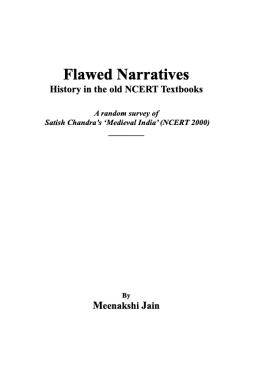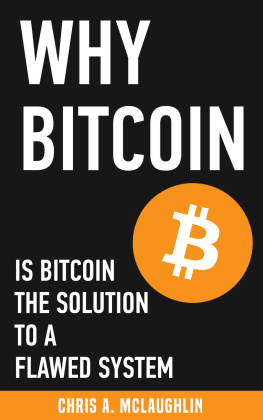OFER SHARONE is the Mitsubishi Career Development Professor and assistant professor of work and employment research at the MIT Sloan School of Management.
The University of Chicago Press, Chicago 60637
The University of Chicago Press, Ltd., London
2014 by The University of Chicago
All rights reserved. Published 2014.
Printed in the United States of America
23 22 21 20 19 18 17 16 15 14 1 2 3 4 5
ISBN-13: 978-0-226-07336-1 (cloth)
ISBN-13: 978-0-226-07353-8 (paper)
ISBN-13: 978-0-226-07367-5 (e-book)
DOI: 10.7208/chicago/9780226073675.001.0001
Library of Congress Cataloging-in-Publication Data
Sharone, Ofer.
Flawed system / flawed self: job searching and unemployment experiences / Ofer Sharone.
pages cm
Includes bibliographical references and index.
ISBN 978-0-226-07336-1 (cloth: alkaline paper)ISBN 978-0-226-07353-8 (pbk.: alkaline paper)ISBN 978-0-226-07367-5 (e-book)
1. Job huntingCross-cultural studies. 2. Job huntingUnited StatesSociological aspects. 3. Job huntingIsraelSociological aspects. 4. UnemployedUnited StatesSociological aspects. 5. UnemployedIsraelSociological aspects. I. Title.
HF5382.7.S475 2014
650.14dc23
2013011218

This paper meets the requirements of ANSI/NISO Z39.48-1992 (Permanence of Paper).
Flawed System / Flawed Self
Job Searching and Unemployment Experiences
OFER SHARONE
THE UNIVERSITY OF CHICAGO PRESS
CHICAGO AND LONDON
FOR MY PARENTS, AKIVA Z"L AND AVIVA SHARON
MY SISTER, CARMIT, AND HER FAMILY, YGAL, MICHAEL, AND MICHELLE
MY CHILDREN, AVILEV, ELIYAH, AND TALIA
AND MY WIFE AND BEST FRIEND, ANA
Contents
Acknowledgments
This book would not have been possible without the tremendous guidance and support of my scholarly community. First and foremost, this includes my mentor Michael Burawoy. No less important was the feedback on countless memoranda and draft chapters from my writing group. Several group members provided support over multiple years and significantly contributed to the formation of this book, including Laleh Behbehanian, Marcel Paret, Fareen Parvez, Cinzia Solari, and Kerry Woodward. I received tremendous intellectual and moral support from Kim Voss, Sandra Smith, Gretchen Purser, Jeremy Schulz, Michele Lamont, Steven Vallas, Evelyn Nakano Glenn, John Van Maanen, Paul Osterman, Roberto Fernandez, and Katherine Kellogg. I am deeply grateful to my rabbi, Michael Lerner, for sensitizing me to the pain of self-blame, and most of all to my interviewees, whose willingness to take the time and to openly share difficult experiences made this book possible. I also extend my gratitude to Douglas Mitchell of the University of Chicago Press for his wise advice and enthusiastic support, and to John Elder and Erin DeWitt for extraordinary copyediting.
Finally support for my writing came from family, including my mother-in-law, Michele Murphy, and my dearest colleague, comrade, and best friend: my wife, Ana Villalobos. But perhaps the most significant form of support was ultimately emotional: helping me persevere during the years of writing and editing were my mother, Aviva Sharon; the memory of my late father, Akiva Sharon; my children, Eliyah, Talia, and Avilev; and, most of all, my wife, Ana.
CHAPTER ONE
Introduction
Unemployment Experiences
The widespread layoffs of white-collar workers accompanying the Great Recession that began in 2008 made dramatically visible a trend that had been growing since the 1970s: the erosion of white-collar job security. While the bursting of the dot-com bubble at the turn of the millennium served as a wake-up call to high-tech workers, the Great Recession sounded a loud and unmistakable warning to all white-collar workers around the world: No one is immune to unemployment.
Despite its increasing prevalence, little is known about the day-to-day experience of white-collar unemployment. Most scholarly studies of unemployment use survey data to trace macro-patterns. These studies are important for understanding the rates and composition of unemployment, but they do not reveal the world of job searching and unemployment that lies behind the statistics. This book delves into that world.
One of the central findings of this book is that the experience of unemployment is largely shaped by the structure of the labor-market institutions in which job searching takes place. Where others have studied the role of individual-level factors, such as a job seekers psychological makeup, I take a sociological approach. I show that the experience of unemployment varies systematically across societies and, within societies, across classes. Variations are ultimately rooted in different labor-market institutions that give rise to different job-search gamessets of discourses, practices, and strategiesthat job seekers use in trying to find work. Different games generate very different experiences of unemployment.
In the United States, white-collar job seekers are engaged in what I call the job-search chemistry game. In this game, hard skills are understood to be important for getting ones foot in the door but not ultimately determinative. The real key to getting a job is establishing ones fit with a particular employer. More than presenting your skills, landing a job requires effectively presenting yourselfthe person behind the skills. In this book, I explore the institutional foundations of the chemistry game, how it structures the practices of American white-collar job seekers, and its profound consequences for their distinctive experience of unemployment.
The most striking effect of the chemistry game is to make American job seekers highly vulnerable to self-blame. This turns unemployment into a double crisis: in addition to the financial crisis of wondering how one will keep paying the bills and not lose ones home, there is the personal crisis of wondering, Whats wrong with me? In turn, self-blame generates equally important secondary effects, including a profound sense of discouragement about the use of further job searching and the widespread understanding of unemployment as an individual and private issue as opposed to one that is public and political. These effects have consequences for society as well as for individuals.
One appreciates the unique character of the chemistry game only through comparison with white-collar job searching in other countries. Among industrialized countries, Israel provides a particularly interesting comparative case because, as will be explained below, it shares important economic and structural characteristics with the United States that would lead one to expect similar unemployment experiences. Yet in Israel a very different set of labor-market institutions generates a very different experience of job search and unemploymenta different game altogether. The Israeli specs game does not focus on interpersonal chemistry but on depersonalized and objectified skills and credentials, and a rigid set of characteristicssuch as the applicants age or the existence of an unexplained gap in their rsumthat are taken to be proxies for qualifications.
These distinct games emerge from institutional differences. Although employers in both countries sift potential candidates using varied filters that to some extent consider both objective specs and subjective chemistry, the way in which hiring is mediated by labor-market institutions makes the specs filter more

 This paper meets the requirements of ANSI/NISO Z39.48-1992 (Permanence of Paper).
This paper meets the requirements of ANSI/NISO Z39.48-1992 (Permanence of Paper).







